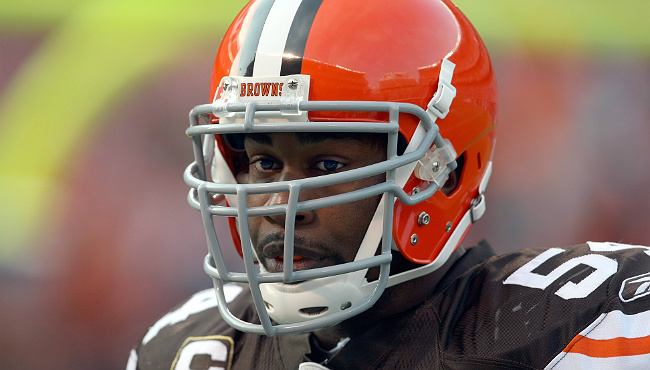
The effects of post-NFL life has begun to receive a little more notice in recent years with the discovery of CTE. Before this, most former players didn’t get much thought, and they likely still don’t. For most of us, these players are celebrities, icons, and not people. They perform spectacular feats for our entertainment, then when they are done (for whatever reason), they quickly vanish from memory, especially if they were never superstars to begin with. But they are people, and they are still living their lives, and sometimes it’s good to be reminded of that.
Enter Andra Davis, a 10-year veteran of the NFL. He was drafted in 2002 by the Cleveland Browns and played linebacker there for seven seasons, and after that a year with the Broncos and two years with the Bills. His career was longer than the average player, but he wasn’t particularly special, and most fans would not remember his name. Davis was featured in an article by The Denver Post, in which he talked about his life post-football, and it’s a sobering, yet ultimately uplifting tale.
The profile touches on subjects we’ve come to hear stories about already many times. The agonizing pain lingering from a long history of injuries and hardships in the league is a subject we’ve been hearing about more and more. Another subject brought up is money. We’ve likely all seen the excellent ESPN 30 for 30, Broke, which goes into detail about the financial problems players deal with, but in Andra’s case, he was lucky. He found a financial planner early in his career and talked to many players on how to manage his money, and as a result, his retirement has been comfortable. Not many players are so fortunate.
What the article does bring up, which many publications and media outlets rarely touch on, is the mental state former players are left in. Davis tells some hard truths about post-football life:
“When you’re playing, everybody loves you, everyone calls you, you’re the savior, the next best thing. Then when you’re done, it’s like, ‘Who are you?’ The party’s over. The lights in the stadium are off.”
Davis had been playing football since he was 6 years old. Many players have. For the majority of these players, football is all they know. All they’ve worked toward. They never imagined or planned for life after football, because when you’re young, you don’t think about what will happen when it’s over. Then, due to the violent nature of the sport and the general degradation of the body, even the longest lasting players are spat back into the world far earlier than most careers end. Then all that they knew is suddenly gone, and that kind of emptiness can break a man.
A lot of superstars end up still in football after they stop playing, as media personalities or coaches, but not everyone is so lucky. Davis was not, and when the lights went out, he was stuck in that dark place for a long time. Despite being financially stable with a loving family, he was depressed to the point of suicidal. It goes to show the sense of loss that these players are frequently going through as a huge part of their identity is no longer relevant. Add to that the chronic pain and (usually) poor financial situation, it’s easy to see why some players actually do choose to end it.
Davis found help, and today is a happier man. He’s doing okay. He even says, “I’d do it all over again, knowing the exact same thing.” But his story serves as a stark reminder of the humanity behind our favorite game.






